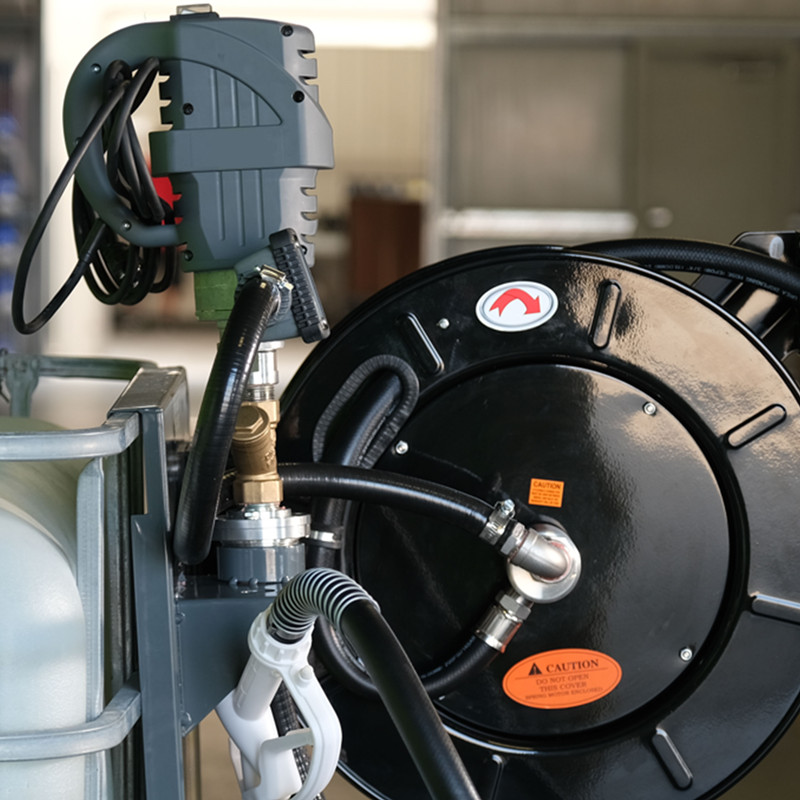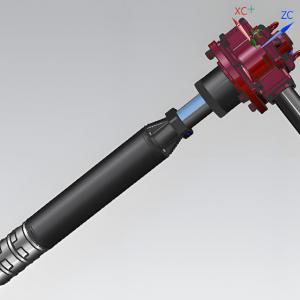Oil Dispenser Pump Guide: Heavy-Duty Solutions for Fleet & Industrial Use
Oil Dispenser Pump Guide: Heavy-Duty Solutions for Fleet & Industrial Use
Oil dispenser pumps are essential for businesses that handle oil regularly. When you're managing truck fleets, construction sites, or industrial operations, having the right equipment for moving oil isn't just helpful—it's necessary for keeping costs down and work flowing smoothly. These pumps turn slow, messy oil changes into quick, clean jobs that save time and money.
Oil pumps work great for many different businesses. Truck repair shops use them daily. Construction companies need them for heavy equipment. Farmers use them to service tractors and other machinery, while gas stations rely on them for customer service bays.
Types of Oil Dispenser Pumps
Manual Hand Pumps
Hand pumps are the cheapest option for moving oil. These pumps work by hand using either a lever or rotating handle, and they're perfect when you don't have electricity nearby or only need to pump small amounts of oil each day. Most hand pumps move about 1 to 5 gallons per minute, which works well for small repair shops or emergency repairs in the field.
The best things about hand pumps are that they don't need electricity and cost less money upfront. However, they require more physical work and aren't good for big jobs that need more than 20 to 30 gallons per day.
Electric Oil Pumps
Electric pumps are the most popular choice for most businesses that pump oil regularly. You can get them in AC power (like regular wall outlets) or DC power (like car batteries), and these pumps can move between 8 and 25 gallons of oil every minute. AC pumps usually pump faster and work best when they stay in one place, while DC pumps are great for service trucks that travel to different job sites.
The newest electric pumps can connect to computer systems that track exactly how much oil gets used. This helps businesses keep track of their oil supply and creates records that some companies need for government rules.
Air-Powered Pneumatic Pumps
Pneumatic pumps use compressed air instead of electricity to work. These pumps are perfect for dangerous areas where electric sparks could cause fires or explosions, and they need less repair work because they have fewer moving parts that can break. Most air-powered pumps move between 5 and 15 gallons per minute, depending on how much air pressure you give them.
These pumps are required by law in many places that handle fuel because they can't create sparks. They work well in very hot or cold weather and don't get damaged as easily by dirty oil compared to electric pumps.
Gravity-Fed Systems
Gravity systems use height differences to make oil flow without any power source. While these systems don't pump as fast as others (usually 2 to 8 gallons per minute), they almost never break down and need very little maintenance. They're especially useful in places without electricity or as backup systems when the power goes out.
Key Features and Specifications
Flow Rate and Pressure Ratings
Choosing the right pump speed depends on how much oil you need to move and how fast you need to do it. Here's a table showing what different types of businesses typically need:
Application Type
Recommended Flow Rate (GPM)
Typical Volume per Service
Time Savings vs Manual
Small Fleet Maintenance
3-8 GPM
10-15 gallons
60-70%
Heavy Equipment Service
8-15 GPM
20-50 gallons
70-80%
Industrial Bulk Transfer
15-25 GPM
100+ gallons
80-90%
Emergency Field Service
2-5 GPM
5-10 gallons
40-50%
Gas Station Service Bays
5-12 GPM
15-25 gallons
65-75%
Regular motor oil needs 15 to 30 PSI of pressure to flow well. Thicker oils like gear oil might need 50 to 75 PSI to move through the pump properly.
Material Construction
The material your pump is made from affects how long it lasts and what types of oil it can handle. Stainless steel pumps resist rust better and work with more types of oil, including synthetic oils and harsh chemicals, but they cost more money. Aluminum pumps cost less and work well for most jobs, but they might not handle all oil additives properly.
Cast iron pumps last the longest in heavy-use situations where strength matters more than weight. For mobile service trucks, aluminum or lightweight materials reduce the total weight while still doing the job well.
Safety and Compliance Features
New oil pumps have many safety features to meet government rules and protect workers. UL-listed parts mean the electrical components are safe to use, while anti-static grounding prevents dangerous static electricity from building up when oil flows through the system. Automatic shut-off stops the pump when tanks are full to prevent spills and waste.
Many pumps also have emergency stop buttons and pressure relief valves that prevent damage if something goes wrong. Spill containment features protect the environment from accidental oil spills during normal use.
Industry-Specific Applications
Fleet and Transportation
Truck repair shops save huge amounts of time with the right oil pumps. A typical service bay that changes oil in 15 to 20 trucks each day can cut oil change time by 40 to 60 percent while making fewer mistakes and spilling less oil. Service trucks with 12-volt electric pumps can change oil right where trucks are parked instead of bringing them to a shop.
Bus companies and delivery services often need several pumps working at the same time during busy repair periods. One central pump system with multiple hoses can serve 4 to 6 service bays at once, keeping all mechanics busy.
Construction and Heavy Equipment
Construction sites create special challenges for oil pumps because equipment works in dusty, tough conditions that require frequent oil changes. Portable pump units with air-powered or 12-volt electric pumps let mechanics service equipment right where it's working, which reduces downtime and saves money on moving equipment. Job sites often combine oil pumps with diesel fuel systems to handle all fluid needs in one place.
These combined systems usually include locks to prevent theft, computers that track usage, and automatic inventory counting.
Agricultural Operations
Farms cover large areas with equipment working far from the main repair buildings. Big oil storage tanks with gravity-fed or electric pump systems help farmers service equipment quickly during important planting and harvest times when every hour counts. Farm equipment needs different types of oil for engines, hydraulics, transmissions, and differentials.
Multi-product systems with separate pumps for each oil type prevent mixing different oils while keeping work moving fast.
Gas Station and Fuel Retail
Service bays at gas stations need fast, accurate oil dispensing to keep customers happy and make money. Electric pumps with digital displays and preset controls let technicians dispense exact amounts quickly and accurately without waste. Many modern pumps connect directly to cash register systems and shop management software.






